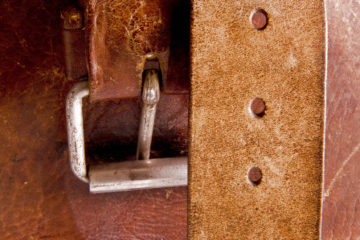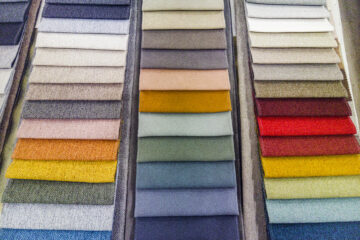The Evolution of Cut-and-Sew in Domestic Soft Goods Production
The cut-and-sew industry has been a pillar of the American textile and apparel sector for generations. Driven by rapid technological and material advancements, this essential industry has undergone a major transformation, streamlining domestic soft goods production. As more and more U.S. businesses are reshoring soft goods production, let’s explore some of the innovations in domestic soft goods manufacturing!
Advancements in Cutting Techniques
Precision cutting is the central process of cut-and-sew. The days of manual cutting with shears and pattern templates are now complemented by high-tech systems that significantly improve consistency and reduce waste.
Automated Cutting Systems
Computer Numerically Controlled (CNC) cutting machines are a staple in many modern production facilities. These machines can rapidly cut through multiple layers of fabric with pinpoint accuracy, eliminating human error and vastly improving throughput. CNC cutting also reduces fabric waste, leading to cost savings and environmental benefits.
Laser and Water-Jet Cutting
Technologically advanced techniques like laser cutting and water-jet cutting are (quite literally) cutting edge. Laser cutting allows manufacturers to program a design and cut clean, sealed edges that prevent fraying. Water-jet cutting uses high-pressure water to cut intricate patterns while preserving fabric integrity.
Digital Patterning and Nesting
Digital patterning software, paired with nesting algorithms, allows manufacturers to optimize fabric usage. By strategically arranging pattern pieces to minimize scrap, manufacturers like Softline Brand Partners reduce costs and environmental impact, aligning with growing consumer expectations for sustainability.
Breakthroughs in Sewing and Assembly
Sewing soft goods has traditionally been time, labor, and financially intensive. However, automation and robotics are transforming this aspect of domestic soft goods manufacturing.
Robotic Sewing Systems
Robotic sewing systems are often employed to reduce labor for sewers. These machines often use water-soluble polymers to temporarily stiffen material, ensuring that robotic arms can accurately manipulate materials. Although still emerging, this technology points to the future of high-precision automated sewing.
Specialized Equipment and Programmable Machines
Modern factories increasingly rely on programmable sewing machines capable of performing repetitive stitching patterns, buttonholes, bar tacking, and decorative designs with exceptional uniformity. Softline Brand Partners employs such technologies to maintain consistent quality while minimizing manual labor.
Machines dedicated to specific operations, like elastic waistband insertion or seam sealing, further streamline the assembly process. These advancements reduce production time, minimize errors, and create garments with superior durability.
Ultimately, these technologies are revolutionizing domestic soft goods manufacturing, making it sustainable and economical to produce in the U.S..
Enhancing Quality and Efficiency
Delivering consistent quality in soft goods is a non-negotiable. Innovations across the production process help domestic manufacturers meet the high expectations of today’s discerning clients.
Real-Time Quality Control
Advanced vision systems and real-time defect detection tools inspect fabrics and sewn goods during production. Immediate feedback enables operators to correct issues on the fly, dramatically reducing rejected units and rework rates.
Lean Manufacturing Principles
Softline Brand Partners incorporates lean manufacturing methodologies to optimize every stage of production. From minimizing inventory to improving factory layouts and eliminating unnecessary steps, these practices boost efficiency while reducing operational costs.
Sustainability and Ethical Production
An often-overlooked benefit of domestic soft goods production is its alignment with sustainability and ethical labor practices.
Manufacturing in the U.S. allows for greater oversight of working conditions, fair wages, and reduced carbon emissions due to decreased transportation distances. Foreign manufacturing facilities may not have the same requirements for working conditions and fair wages, potentially putting businesses at risk.
The Role of Softline Brand Partners
With facilities in the Midwest and East Coast, Softline Brand Partners shows how embracing modern technologies can elevate domestic soft goods manufacturing. Their comprehensive approach to soft goods production positions them as an industry leader.
Softline’s flexibility and capacity for high-mix, low-volume production runs meet the growing demand for customized, small-batch products. The company’s strong, domestic supply chain partnerships and commitment to quality ensure that clients receive superior products delivered on time and within budget.
The evolution of cut-and-sew techniques signals a promising future for domestic soft goods production. As technology continues to advance and consumer preferences shift toward customization and ethical sourcing, the industry is poised to grow.
Connect with Softline Today!
Manufacturers like Softline Brand Partners stand ready to lead this new era. To learn more about our domestic manufacturing facilities, contact Softline Brand Partners today.










